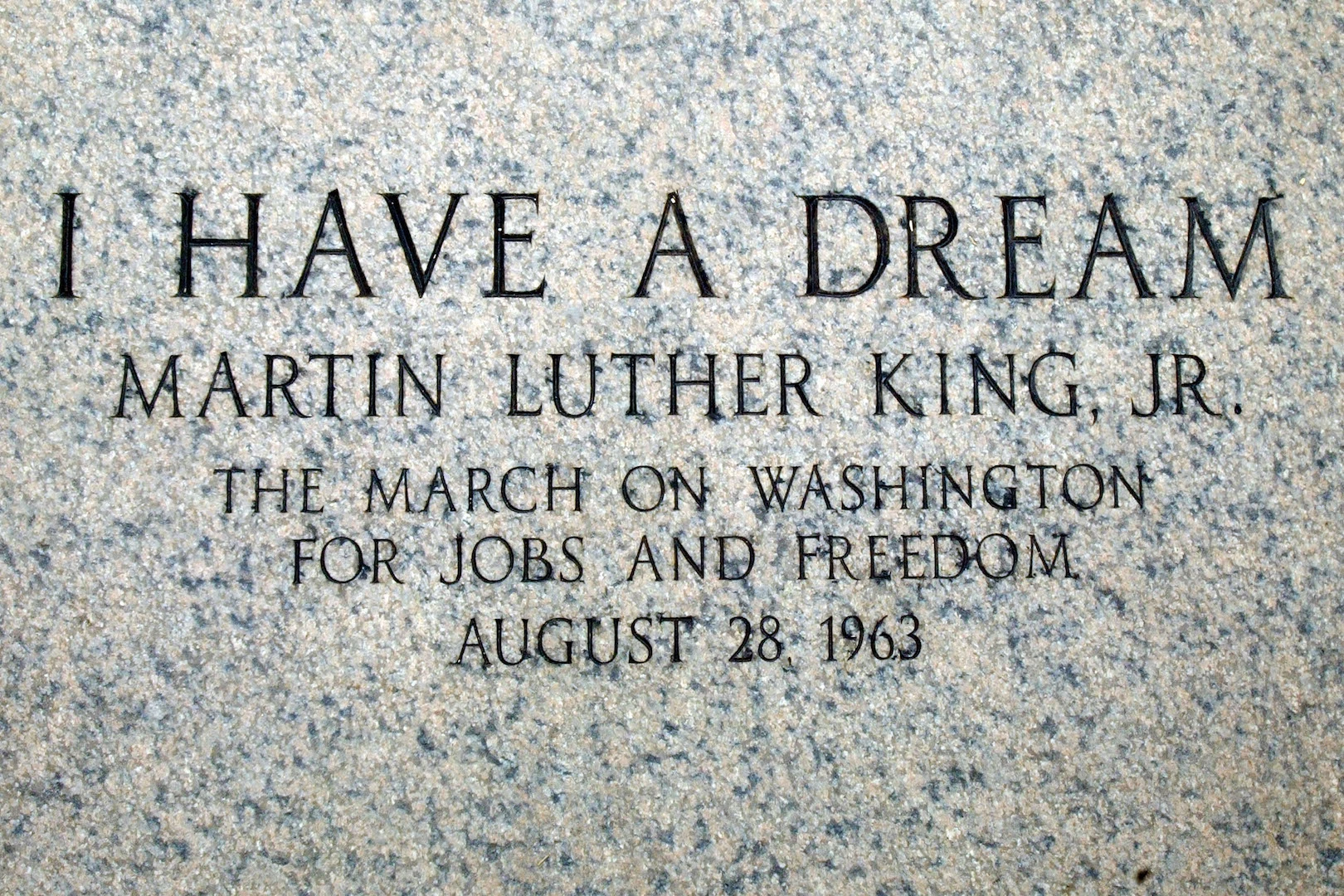
When the architects of our republic wrote the magnificent words of the Constitution and the Declaration of Independence, they were signing a promissory note to which every American was to fall heir. In a sense we’ve come to our nation’s capital to cash a check.

And so we’ve come here today to dramatize a shameful condition. One hundred years later, the Negro is still languished in the corners of American society and finds himself in exile in his own land. One hundred years later, the Negro lives on a lonely island of poverty in the midst of a vast ocean of material prosperity. One hundred years later, the life of the Negro is still sadly crippled by the manacles of segregation and the chains of discrimination. It came as a joyous daybreak to end the long night of their captivity.īut one hundred years later, the Negro still is not free. This momentous decree came as a great beacon light of hope to millions of Negro slaves who had been seared in the flames of withering injustice. I am happy to join with you today in what will go down in history as the greatest demonstration for freedom in the history of our nation.įive score years ago, a great American, in whose symbolic shadow we stand today, signed the Emancipation Proclamation. (Southern Christian Leadership Conference) “I Have a Dream,” Address Delivered at the March on Washington for Jobs and FreedomĪuthor: King, Martin Luther, Jr.

I am posting this, because some 50+ years after MLK’s assassination, many younger folks have never read it. One year older than King himself, Sandy is still going strong, enjoying retirement in Santa Barbara.Monday, January 18th, 2021 is Martin Luther King Jr. But as the world celebrates his dream 50 years later, it’s important to remember how King himself saw it in his own lifetime: as a vision of a promise still unkept.Īuthor’s note: A special thanks to Sander Vanocur – not only for his extraordinary interview with Martin Luther King, but for the generosity he’s shown in sharing his recollections and insights. We can only imagine how he would see things today. If Martin Luther King had lived he would be 84 now. Mourners that day included President Johnson, soon-to-be president Richard Nixon, soon-to-be martyred Robert Kennedy, and JFK’s widow Jacqueline Kennedy. And on April 9, 1968, his funeral was held there. And it was conducted in Atlanta’s Ebenezer Baptist Church, where King was a pastor, as his father had been. It was shot on color film, something still relatively new in television news in 1967. The centerpiece of the special was Vanocur’s interview with King. NBC News, which had distinguished itself with its coverage of the civil rights movement since the mid-50s, gave the go-ahead to Vanocur and producer Stuart Schulberg to prepare a special report called “After Civil Rights: Black Power.” It aired on J– the fourth anniversary of Kennedy’s landmark civil rights speech.
/cloudfront-us-east-1.images.arcpublishing.com/gray/BQHZ7YEXLNDSLEAJO6UGHZ6IW4.png)
And crucially, it poisoned his relationship with Johnson, who had been a key ally.įacing all that, King was embattled and increasingly isolated in 1967.

government “the greatest purveyor of violence in the world today.” It cost him white support, and even angered many blacks, who felt King should confine his message to civil rights. Just four days before his interview with Vanocur, King delivered a scathing anti-war speech at New York’s Riverside Church, calling the U.S. King opposed that war – in fact he was one of its most prominent and vocal critics. Kennedy’s successor Lyndon Johnson won passage of the Civil Rights Act and the Voting Rights Act, declaring in a memorable 1965 speech to Congress, “We shall overcome.” But by 1967 Johnson had taken the country deeply into the war in Vietnam.Ĭlick here for powerful images capturing the struggle for civil rights He had been impressed by King and had delivered his own historic, nationally televised speech on civil rights in June of that year. NBC correspondent Sander Vanocur during his 1967 interview with Martin Luther King Jr.Ī lot had changed for King since 1963.


 0 kommentar(er)
0 kommentar(er)
